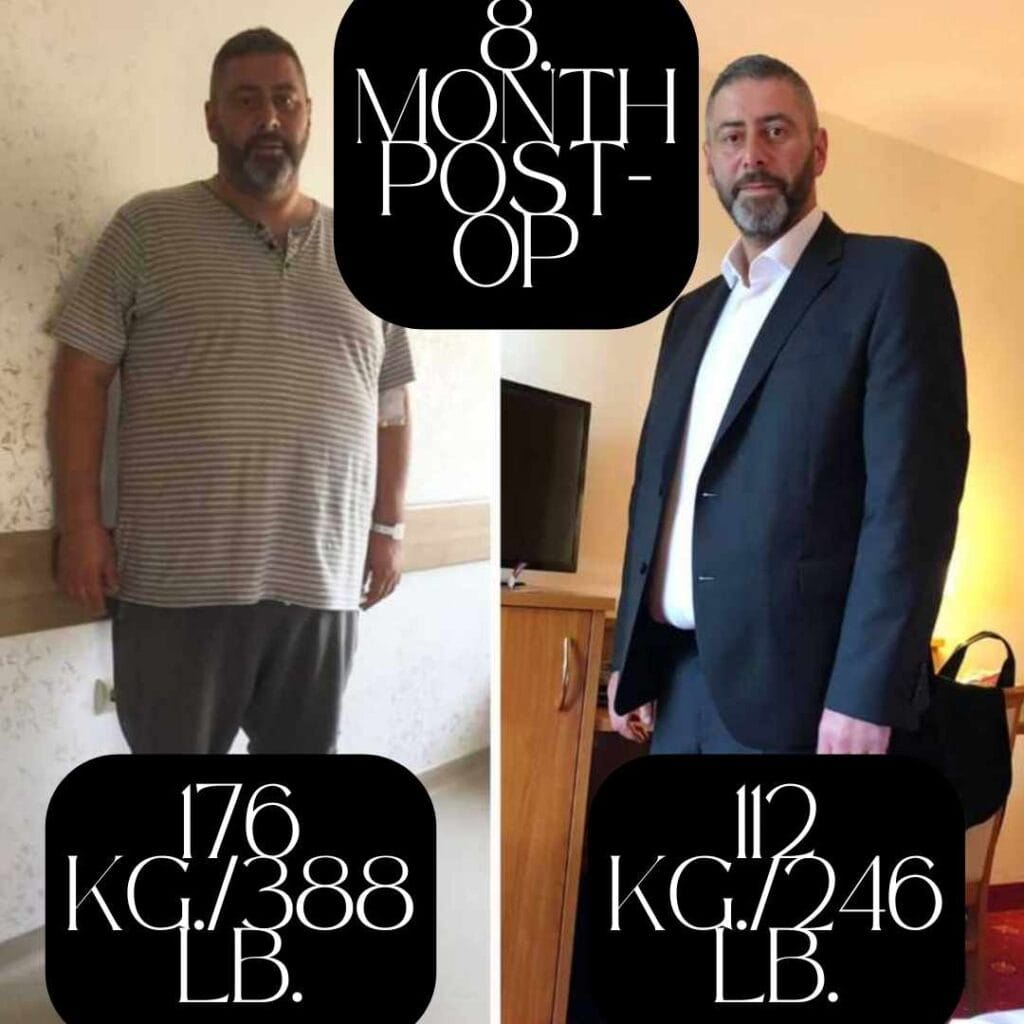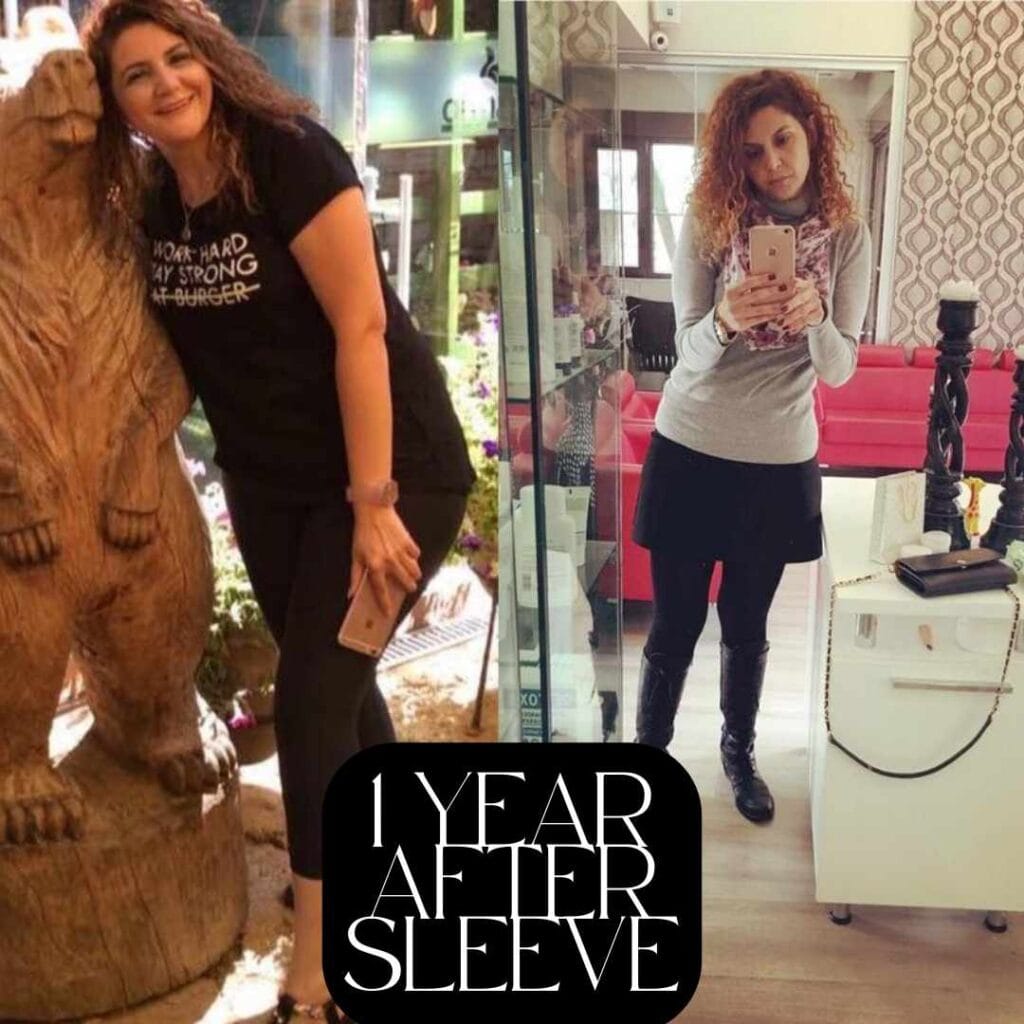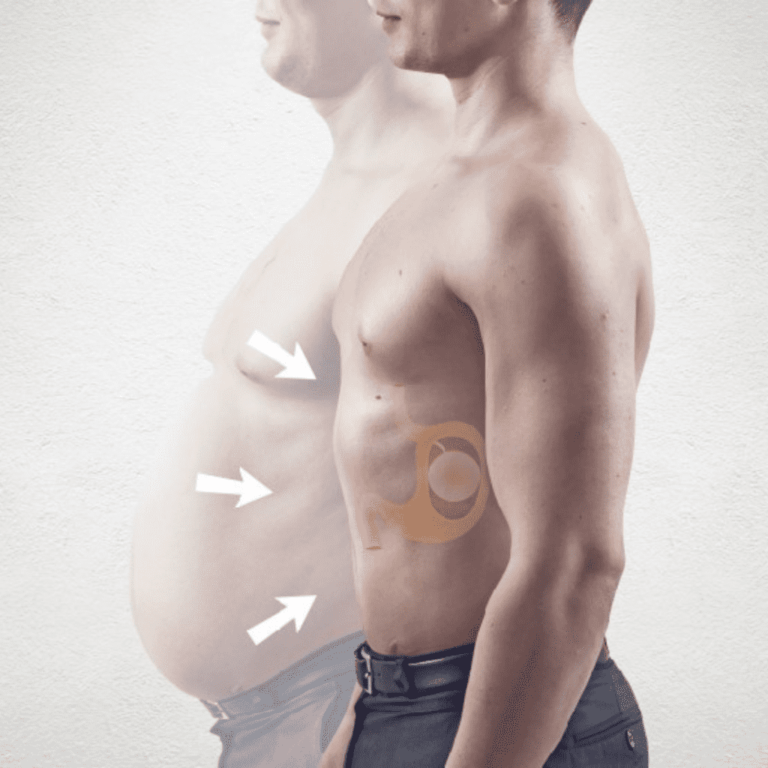Gastric Sleeve Surgery Ruined My Life: Understanding Risks and Realities
Gastric sleeve surgery ruined my life or change my life? For some, gastric sleeve surgery is a life-changing solution, but for others, it can lead to unexpected challenges that feel overwhelming. Complications such as hair loss, changes in taste, or excess skin can take a toll, not just physically but emotionally as well. Struggles with body image, post-surgery procedures like tummy tucks, and even doubts about the decision itself can linger long after the hospital stay. This blog explores what happens before and after gastric sleeve surgery —sharing real experiences, tackling uncertainties, and offering insights into choosing the right surgeon and clinic, including popular destinations like gastric sleeve surgery Turkey. If you’re questioning the risks or wondering if this is the right path for you, you’re not alone.

Understanding Gastric Sleeve Surgery
What is Gastric Sleeve Surgery?
Gastric sleeve surgery, also known as a sleeve gastrectomy, is a bariatric procedure designed to assist with weight loss. During the operation, approximately 75-80% of the stomach is removed, leaving a smaller, tube-like structure resembling a sleeve. The primary purpose of this procedure is to reduce the stomach’s capacity, making you feel fuller with less food and helping to regulate hunger hormones.
The surgery is performed laparoscopically, meaning it involves small incisions and a relatively quick recovery time. However, it’s not without potential risks. Common complications include nausea, acid reflux, or even more significant issues such as infection or leaks from the staple line. For anyone worried about long-term challenges, complications like loose skin, hair loss, or changes in taste are also worth considering.
If you’re planning to undergo the surgery abroad, gastric sleeve in Turkey is a popular choice owing to its affordability and experienced surgeons. But as with any major surgery, understanding both benefits and risks is critical.
Who is Gastric Sleeve Surgery For?
Gastric sleeve surgery is not a quick solution for weight loss. It’s a serious procedure tailored for individuals who have struggled with obesity for years and haven’t achieved results through diet and exercise alone. So, who qualifies?
- Body Mass Index (BMI): Typically, candidates have a BMI of 40 or higher. Those with a BMI of 35+ may also qualify if they have obesity-related health issues such as diabetes or hypertension.
- Age and Overall Health: Most candidates range between 18-65 years old and must pass a comprehensive health screening to ensure they can safely undergo surgery.
- Commitment to Lifestyle Changes: Perhaps most vital is a willingness to make permanent dietary and lifestyle changes. Surgery is only one step in the weight loss journey – maintaining results requires ongoing effort.
For those considering international options, The More Clinics provide reputable services, including pre-surgery evaluations to confirm you’re an appropriate candidate.
Understanding if gastric sleeve surgery is right for you involves more than ticking off items on a checklist. It’s about preparing emotionally, physically, and mentally for the changes ahead. If you’re unsure, consulting a specialist or attending an online consultation could provide clarity and help you make an informed choice.
The Untold Side of Gastric Sleeve Surgery
While gastric sleeve surgery is hailed as a powerful tool for weight loss, the journey is not always a smooth one. Many patients face emotional hurdles that can be life-altering and express their feelings with a sentence: gastric sleeve surgery ruined my life! Understanding these challenges is crucial if you’re considering the procedure or grappling with its aftermath.
Complications
Gastric sleeve surgery has its fair share of risks, and even months after the procedure, complications can surface. Hair loss is a common side effect due to the drastic reduction in calorie and nutrient intake. For many, this can shake self-confidence during an already challenging period.
Another unexpected issue? A sudden and disorienting loss of taste, leaving you detached from previously enjoyed meals.
Physically, patients might face staple line leaks or chronic acid reflux. Both conditions require immediate attention and could lead to longer-term medical intervention. If you’re navigating any of these hurdles post-surgery, check out this helpful guide on gastric sleeve recovery for tailored advice and insights.
Loose Skin and Body Dysmorphia
Massive weight loss often comes with an unanticipated side effect: loose, sagging skin. For many, this becomes more than just a cosmetic issue. It impacts daily life, from difficulties with exercise to skin irritation. Emotionally, it can fuel body dysmorphia – a distortion in how you see yourself in the mirror despite significant weight loss.
Dealing with excess skin necessitates additional surgeries, such as mommy makeovers, tummy tucks or arm lifts.

Post-Surgery Challenges
Life after gastric sleeve surgery is often marked by a steep adjustment curve. The immediate dietary restrictions can feel overwhelming – you’re suddenly eating far less yet trying to stay nourished. Food aversions, nutrient deficiencies, and even dehydration can creep in as you adapt to your new lifestyle.
On top of physical obstacles, mental health challenges also emerge. For some, the massive lifestyle shift leads to anxiety or depression. Others struggle with feelings of regret, questioning their decision after experiencing unforeseen complications. If you’re considering travelling for surgery or need additional resources, read more about gastric sleeve surgery in Turkey and what it offers for post-operative care and counselling.
By exploring these realities, you can better prepare for the unexpected. Gastric sleeve surgery isn’t just about shedding kilos; it’s a transformative journey that demands emotional resilience and continuous effort. Keep reading as we dive deeper into the experiences of both success stories and those filled with regret.
Post-Weight Loss Cosmetic Surgeries
After significant weight loss, achieving your desired body contour may require additional surgeries to address excess skin and refine your shape.
Common procedures include tummy tucks (abdominoplasty), arm lifts (brachioplasty), thigh lifts, and body lifts. These surgeries help tighten and tone areas affected by loose or sagging skin, providing a smoother and more proportional appearance.
Our experienced surgical team specializes in personalized care to deliver results that align with your aesthetic goals and enhance your confidence.

The Decision to Undergo Surgery
Choosing to undergo gastric sleeve surgery is a deeply personal decision, often driven by the desire for significant weight loss and better overall health. However, this life-altering choice requires careful consideration. Whether you’re exploring local options or considering surgery abroad in popular destinations like Turkey, doing your homework on surgeons, clinics, and the procedure itself is critical. Here’s what you need to know before taking the plunge.
How to Choose a Surgeon and Clinic
The surgeon and clinic you choose can significantly influence the outcome of your surgery. Picking the right provider isn’t just about credentials; it’s about trust and transparency.
To start, look for certified surgeons with a strong reputation in bariatric procedures. Seek those who specialise in gastric sleeve surgery and have years of experience. This isn’t a procedure to leave in inexperienced hands. Many clinics will openly share before-and-after photos, patient case studies, or even success rates – don’t hesitate to ask for this information.
Online reviews are another valuable tool. Websites, forums, and social media platforms often contain testimonials from patients who have undergone the surgery. Look out for detailed accounts that mention professionalism, aftercare, and overall experience. Keep in mind, a perfect five-star rating might not always indicate authenticity, so aim for consistency in reviews.
To ensure you’re in safe hands, consider the following steps:
- Ask about surgeon accreditations: Are they backed by recognised associations in bariatric surgery?
- Examine the facility’s certifications: Clinics should meet high international health and safety standards.
- Gastric sleeve Turkey: Gastric Sleeve in Turkey must have taken place in a hospital due the legal standards.
- Schedule consultations: A good surgeon will answer all your questions, explain risks and results clearly, and provide realistic expectations.
Considering Gastric Sleeve Surgery in Turkey
Turkey has become a hub for medical tourism, offering gastric sleeve surgery at a fraction of the cost compared to Western countries. The combination of affordable prices, experienced surgeons, and luxury facilities draws thousands of patients from around the world. But as with any major decision, there are pros and cons to weigh.
The Benefits:
- Cost Savings: The average price for gastric sleeve surgery in Turkey is significantly lower than countries like the US, Canada or UK. Depending on the package, some clinics offer prices around $5,000, often including travel and accommodation.
- Experienced Surgeons: Turkey is home to highly skilled bariatric surgeons well-versed in modern techniques.
- All-Inclusive Packages: Many clinics in Turkey provide packages covering consultation, surgery, post-operative care, and even hotel stays.
For a trusted option, The More Clinics provides comprehensive all-inclusive packages for those considering gastric sleeve surgery in Turkey. They outline everything you need to know, from surgery prep to recovery.
The Risks:
- Travel Risks: Flying soon after surgery can increase the risk of blood clots. You have to get a fit to fly paper approved by surgeon.
- Variable Quality: Not all clinics maintain the same high standards. Research thoroughly to ensure the facility is reputable and meets international medical standards.
- Language Barriers: Language differences can make communication challenging if the clinic doesn’t provide translators or bilingual staff.
When considering surgery in Turkey, ensure the clinic has a transparent policy regarding aftercare and contingency plans. It’s one thing to receive top-notch care abroad, but does the provider have a plan in place should complications arise after you return home? Before booking, check out this guide on weight loss surgery safety in Turkey to learn more about clinic standards and precautions.
Making a decision to undergo gastric sleeve surgery – whether locally or abroad – should never be rushed. Arm yourself with information, ask the hard questions, and ensure you’re fully confident before moving forward.
Gastric Sleeve Before and After Experiences
Choosing to undergo gastric sleeve surgery is a monumental decision, and the experiences vary widely from patient to patient. While some people achieve their health and weight loss goals, others are left grappling with unforeseen complications or unmet expectations. Here, we break down real-life stories of those who embraced this journey—some with great results, and others with enduring challenges. Check out some
Success Stories
For many, gastric sleeve surgery has been a life-changing experience that revitalises both physical and mental health. Patients often share how they’ve regained control over their lives, whether it’s shedding significant weight, reducing or eliminating obesity-related illnesses, or bolstering their self-esteem.
Many patients report dramatic weight loss within the first year post-surgery. They share inspiring stories of being able to ditch medications for diabetes or high blood pressure, and of finally being able to enjoy life’s simple pleasures, such as chasing their kids around or taking long walks. It’s these positive outcomes that showcase the transformative power of the surgery.
If you’re looking for inspiring accounts, explore gastric sleeve experiences at The More Clinics, where real patients narrate their motivations, struggles, and triumphs. These stories can provide hope and insight for anyone considering the surgery.
Gastric Sleeve Before and After Pictures



Regret Stories: “Gastric Sleeve Surgery Ruined my Life”
On the flip side, not every story has a happy ending. Some patients regret undergoing gastric sleeve surgery and tell “gastric sleeve surgery ruined my life” due to complications or a mismatch between their expectations and reality. Physical challenges, such as severe acid reflux, chronic nausea, or staple line leaks, can make daily life more difficult than anticipated. Others find themselves overwhelmed by the emotional toll of rapid weight loss, from body dysmorphia due to loose skin to feelings of isolation during recovery.
Many people also struggle with the shift in their relationship with food. Post-surgery, the inability to enjoy meals as they once did can feel restrictive, while complications like malnutrition or food intolerances can cause lingering health issues. Adding insult to injury, the steep costs—even if done abroad in affordable destinations like Turkey—make the regret all the more painful.
Understanding the potential risks and complications is vital to making an informed decision about the procedure. Explore expert-guided advice on gastric sleeve complications and recovery to prepare for every aspect of this life-altering surgery.
Both the success stories and regret narratives paint a full picture of what one might experience after gastric sleeve surgery. By learning from those who’ve walked this path, hopeful patients can weigh the pros and cons and decide if this surgical option aligns with their weight loss goals and overall well-being.
Weighing the Risks: Gastric Sleeve Death Rate
Gastric sleeve surgery is often hailed as a breakthrough for those battling obesity, offering significant weight loss and health improvements. However, like any major surgical procedure, it comes with its share of risks, and in rare cases, these risks can result in death. If you’re contemplating surgery, understanding the factors involved in the gastric sleeve death rate is critical.
What Contributes to the Gastric Sleeve Death Rate?
The death rate for gastric sleeve surgery is relatively low. Based on recent studies, it’s estimated to be approximately 0.1% or 1 in every 1,000 patients. While this appears minimal, especially compared to other complex surgeries, it’s crucial to remember that these figures don’t guarantee a risk-free experience. Many factors can contribute to complications or fatalities, some of which include:
- Underlying Health Conditions: Heart disease, diabetes, or severe obesity can increase risks during and after surgery.
- Surgical Complications: Issues such as staple line leaks, bleeding, or infections are potential contributors.
- Aftercare Negligence: Proper post-surgery care is crucial. Ignoring symptoms or skipping follow-ups can lead to severe consequences.
- Travel Risks: For those pursuing surgery abroad, long flights can elevate the risk of blood clots (deep vein thrombosis).
While fatalities are rare, complications can develop, which may not lead to death but still significantly impact quality of life. For a fuller understanding of risks and aftercare, you can explore insights on gastric bypass risks.
Importance of a Skilled Surgeon and Accredited Clinic
Choosing the right clinic and surgeon plays a significant role in reducing risks. Skilled bariatric surgeons with a solid track record can manage complications more effectively, ensuring better outcomes. Before proceeding, ask critical questions like:
- Are they certified in bariatric surgery?
- Do they have a history of successful outcomes?
- Is the clinic accredited and compliant with international health standards?
Those considering affordable options like gastric sleeve in Turkey can still find safe, high-quality care by researching thoroughly, reading reviews, or even consulting previous patients. Ensuring the clinic has well-defined aftercare policies and emergency plans is non-negotiable.
How Common Are Gastric Sleeve Complications?
While the focus on mortality rates is essential, it’s equally critical to evaluate the frequency and severity of complications. These don’t just affect the surgical outcome but also your recovery and long-term well-being. Common complications include:
- Staple Line Leaks: Occurring in about 1-2% of cases, these leaks can lead to infections, requiring immediate medical attention.
- Postoperative Bleeding: Though rare, excessive internal bleeding can occur, especially if blood thinners are used pre-surgery.
- Nutritional Deficiencies: A reduced stomach size means lower food intake, which can result in vitamin and mineral deficiencies.
- Chronic Conditions: Issues like persistent nausea, gastrointestinal discomfort, or acid reflux may develop for some patients.
The key to preventing or mitigating these risks lies in proper preparation and ongoing medical care. Learn more by exploring expert advice on minimising gastric sleeve complications.
Does Gastric Sleeve Surgery in Turkey Increase Risks?
Medical tourism, particularly for bariatric surgery, has gained traction due to the affordability of procedures abroad. Turkey is a leading destination, boasting experienced surgeons and modern facilities. However, for some, the question arises: Does seeking affordable gastric sleeve surgery overseas elevate the death rate or complication risks?
Factors to weigh when considering gastric sleeve surgery in Turkey include:
- Expertise of Surgeons: Many clinics in Turkey employ highly skilled surgeons specialising in minimally invasive techniques.
- Travel-Related Concerns: Long flights post-surgery require precautions against blood clots.
- Clinic Selection: There’s a spectrum of clinic standards. While many uphold outstanding practices, others may not meet basic safety requirements.
- Language Barriers: Without a translator, critical information could be miscommunicated, which might compromise care.
It’s essential to conduct due diligence. For trustworthy insights, read more about weight loss surgeries in Turkey. Balancing affordability with quality ensures better outcomes and significantly reduces risks.
Understanding the realities of the gastric sleeve death rate helps guide informed decisions, placing safety and preparation at the forefront of your weight loss journey.
Life Before and After Gastric Sleeve Surgery
Gastric sleeve surgery is hailed as a transformative procedure for those struggling with obesity. However, the journey after surgery introduces a new set of challenges that demand adjustments in every aspect of life. Gastric sleeve before and after, life is different. From eating habits to emotional well-being, the post-operative phase is critical to your recovery and long-term success.
Diet and Lifestyle Adjustments
After gastric sleeve surgery, your relationship with food changes forever. The reduced stomach size means that you’ll need to focus on quality over quantity to ensure proper nourishment. Staying on track requires commitment and a few essential changes:
- Portion Control: With your stomach now the size of a banana, overeating is not only physically impossible but also dangerous. Stick to small, well-balanced meals to avoid discomfort or complications like vomiting.
- Nutrient-Dense Foods: Every bite counts. Your meals should prioritise high-protein, vitamin-rich options, such as lean meats, eggs, and leafy greens.
- Hydration: While staying hydrated is crucial, avoid drinking fluids during meals, as this can overwhelm your stomach and hinder nutrient absorption. Sip water between meals throughout the day.
- Avoid Trigger Foods: Spicy, greasy, or overly processed foods can irritate your sensitive digestive system. Start slowly when reintroducing new foods and monitor how your body reacts.
- Supplementation: Nutritional deficiencies are common after surgery, making lifelong supplements like multivitamins, calcium, and B12 essential.
Long-term success also depends on maintaining an active lifestyle. Regular exercise, such as walking or light cardio, helps you rebuild strength and maintain weight loss. It’s not about drastic routines—it’s about finding consistency that works for you.
For additional guidance on recovery of gastric sleeve before and after and adjustments post-surgery, explore this comprehensive recovery guide.
Coping with Emotional Changes
The physical adjustments are only half the story—emotional and psychological changes post-surgery can catch many by surprise. Rapid weight loss may evoke a range of emotions, from excitement to frustration, as you adapt to your new body and lifestyle.
Common psychological challenges include:
- Body Dysmorphia: Despite visible weight loss, some patients struggle to accept their new appearance. Excess skin, in particular, can lead to feelings of self-consciousness and a need for additional procedures, such as a tummy tuck.
- Regret or Anxiety: The permanence of the surgery can overwhelm some individuals, especially when complications or societal pressures come into play.
To navigate these emotional changes:
- Seek Support: Joining a bariatric support group can help you connect with others who’ve experienced similar challenges. Sharing stories and strategies often brings relief and inspiration.
- Therapy or Counselling: Speaking with a therapist trained in post-bariatric care can provide tools to manage anxiety or self-esteem issues.
- Celebrate Small Wins: Progress isn’t just about kilos lost. Whether it’s climbing stairs without breathlessness or fitting into a smaller size, acknowledge and celebrate your achievements.
- Focus on Your “Why”: Remind yourself of the reasons you chose this path—whether for your health, family, or self-confidence.
It’s vital to approach these challenges with patience. Emotional recovery of gastric sleeve before and after takes time, just like physical healing.
Last Words from the More Clinics
Gastric sleeve before and after can be transformative for some but devastating for others, particularly when faced with unexpected complications like hair loss, changes in taste, or body dysmorphia. Life after surgery demands resilience and dedication to adapt physically and emotionally, especially with challenges such as loose skin or regret stemming from the procedure.
Take your time to decide, ask questions, and prioritise your well-being above all. This journey is deeply personal, and understanding both the potential rewards and risks will arm you with the knowledge to decide if it’s the right path for your life.
If you’re considering this surgery, gathering all the facts and exploring trusted options, like those for gastric sleeve in Turkey, can help you make an informed choice. At the More Clinics, our experienced medical team is committed to helping you achieve your weight loss goals through gastric sleeve surgery and comprehensive aftercare. Contact us today to book a free consultation and learn more about our bariatric surgery options and start your journey to a healthier life today.
SOURCES:
A GUIDE TO LIFE AFTER
OESOPHAGEAL/GASTRIC SURGERY”
“Long-term complications and side effects of bariatric surgery: a
systematic review”
“Diagnosis and Management of Postoperative Complications After Sleeve Gastrectomy”
“The advantages and disadvantages of sleeve gastrectomy; clinical laboratory
to bedside review”
“The effects of bariatric surgical procedures on the improvement of metabolic syndrome in morbidly obese patients: Comparison of laparoscopic sleeve gastrectomy versus laparoscopic Roux-en-Y gastric bypass”
HOW THE MORE CLINICS KEEP THE CONTENT UP TO DATE:
Our dedicated medical and editorial teams work tirelessly to stay informed about the ever-evolving world of health news. By rigorously tracking the latest research, clinical guidelines, and significant developments across various medical fields, they ensure that our content remains accurate, relevant, and up-to-date. This includes reviewing peer-reviewed studies, consulting with healthcare professionals, and monitoring advancements in medical technology. Their meticulous efforts and attention to detail allow us to provide you with trustworthy, reliable information that you can depend on to make informed decisions about your health and well-being.
However, we still insist on getting a healthcare professional’s opinion before you make any decision about your health. Consulting with a qualified expert ensures that the choices you make are informed, safe, and tailored to your individual needs.
Last Uptaded at: February 28, 2025
Medically Reviewed by: NAMIK YILMAZ, MD, BARIATRIC SURGEON






